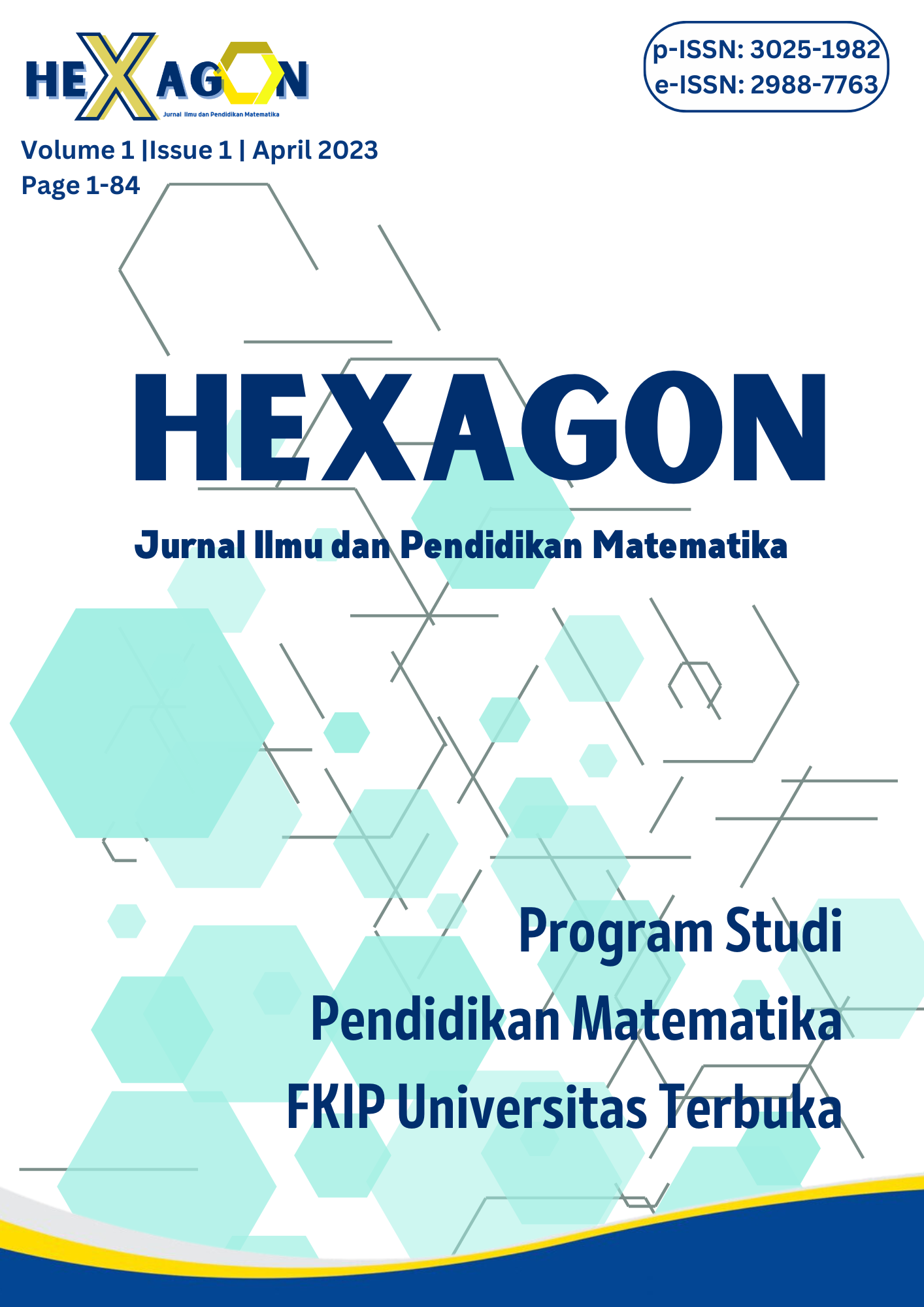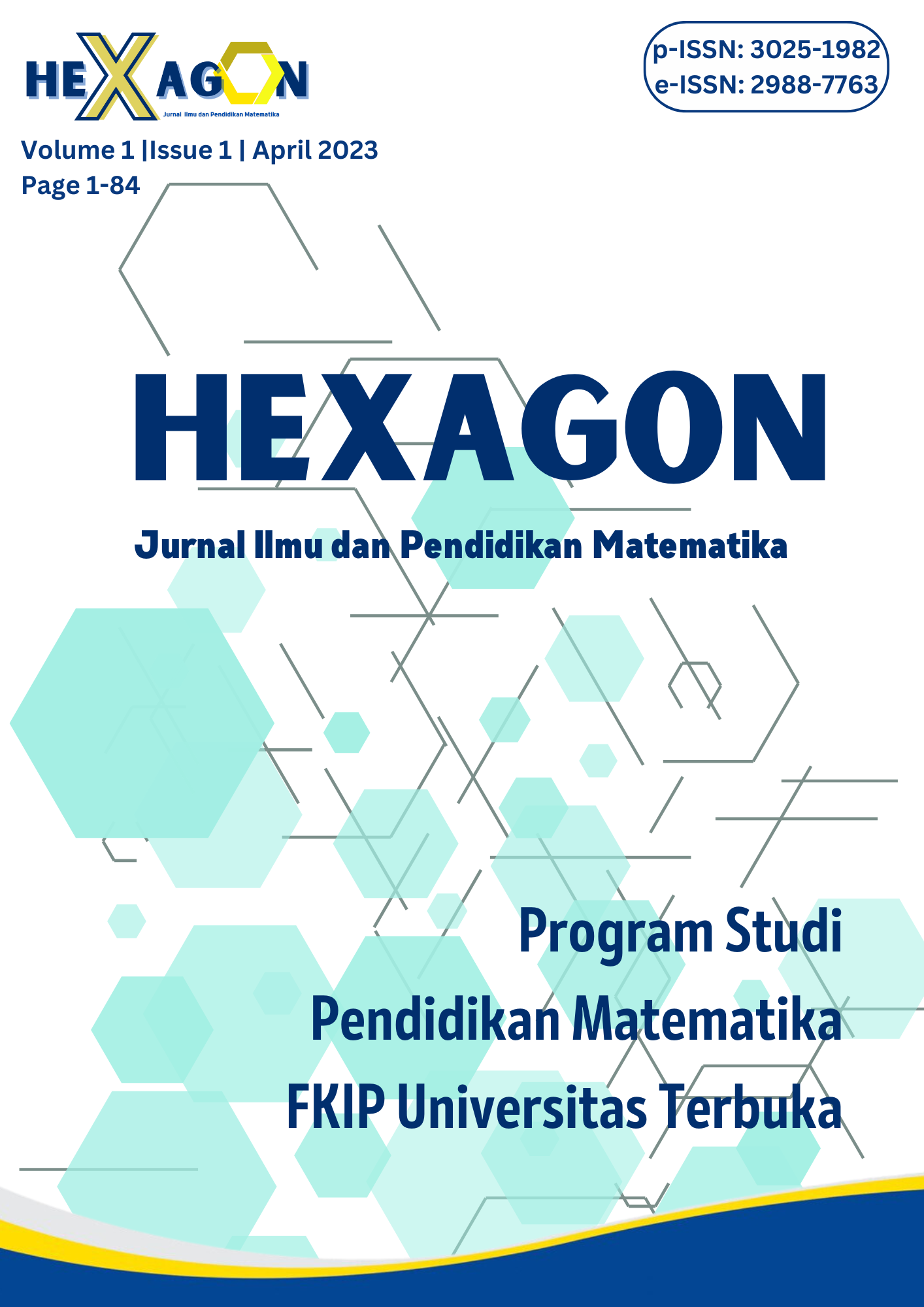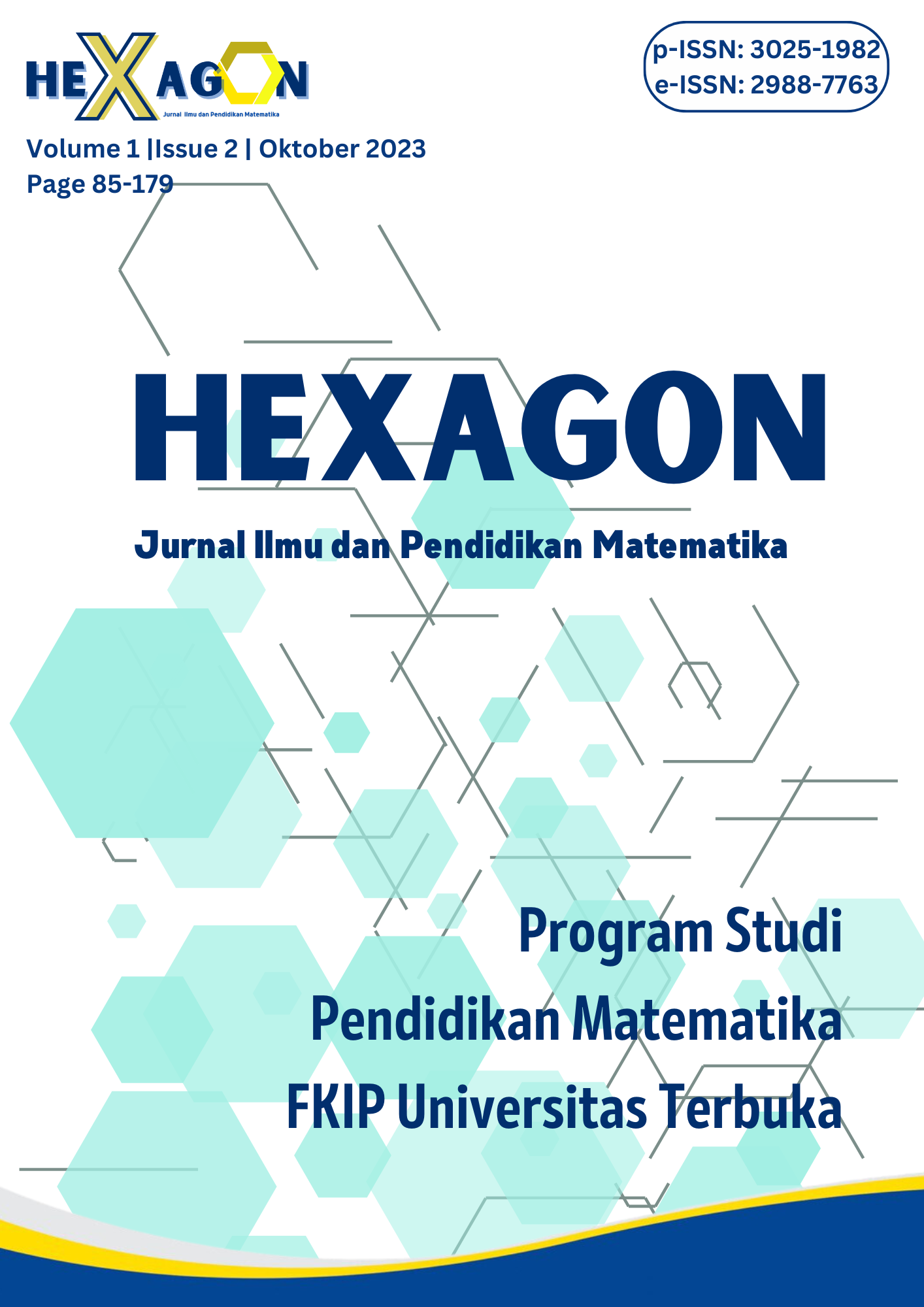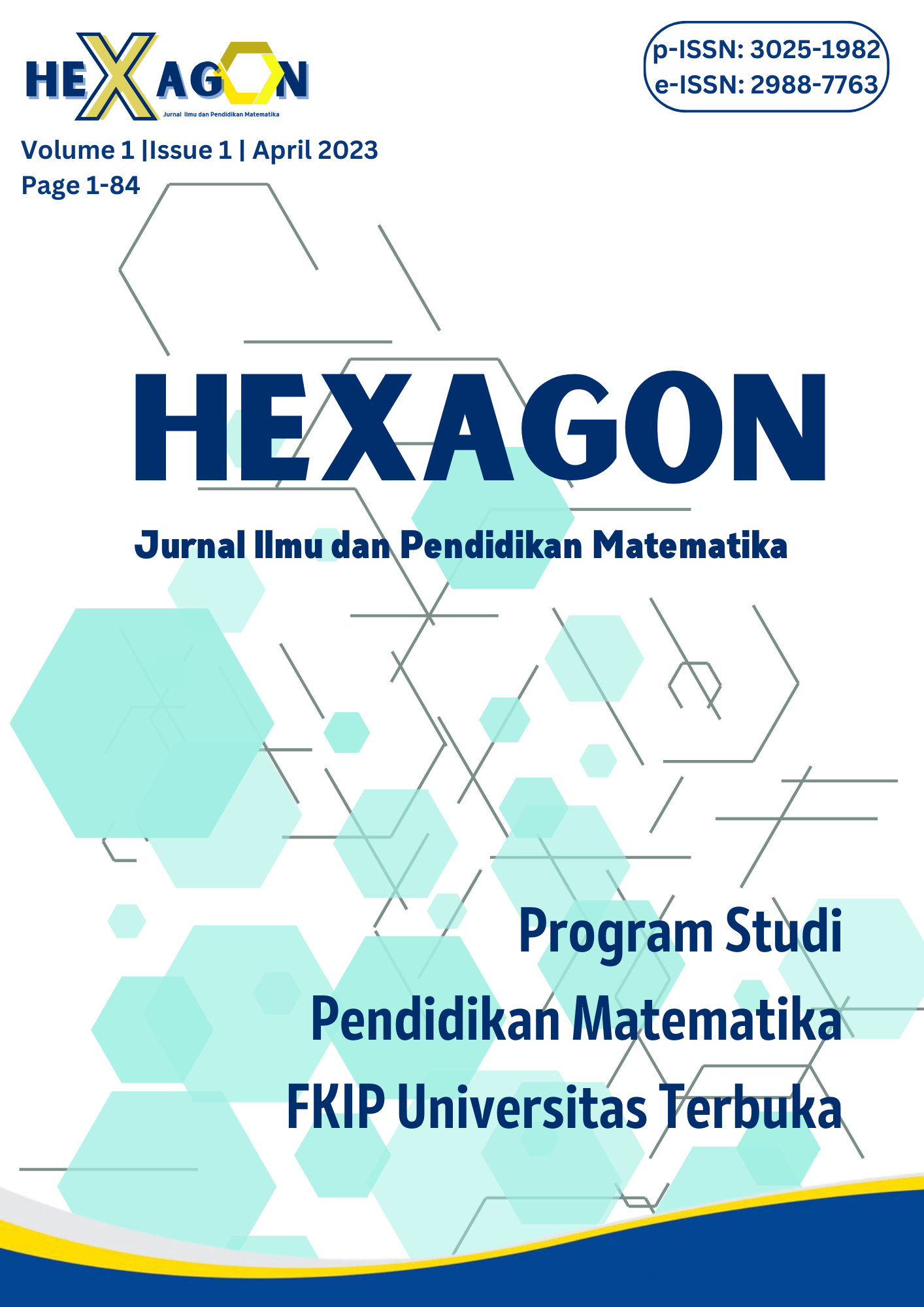-
Vol. 3 No. 2 (2025): October
This issue of Hexagon: Journal of Mathematics Science and Education delves into the integration of technology-driven learning tools within mathematics education. Drawing on empirical investigations, the contributors discuss both the opportunities and the obstacles presented by digital technologies in mathematics classrooms. Whether through interactive simulations or online collaboration systems, these tools are seen to boost student participation and enhance their conceptual grasp. Additionally, this issue explores pressing concerns such as equitable access and the ongoing professional development needs of educators. Contributors in this October 2025 issue come from Indonesia and Nigeria, reflecting diverse perspectives in regional mathematics education research. Altogether, the publication provides meaningful reflections on inclusive mathematics instruction and offers forward-looking perspectives on how technology and other innovative strategies are shaping the evolution of mathematics education.


-
Vol. 3 No. 1 (2025): April
This issue of Hexagon: Journal of Mathematics Science and Education delves into the integration of technology-driven learning tools within mathematics education. Drawing on empirical investigations, the contributors discuss both the opportunities and the obstacles presented by digital technologies in mathematics classrooms. Whether through interactive simulations or online collaboration systems, these tools are seen to boost student participation and enhance their conceptual grasp. Additionally, this issue explores pressing concerns such as equitable access and the ongoing professional development needs of educators. Contributors in this April 2025 issue come from Indonesia and Thailand, reflecting diverse perspectives in regional mathematics education research. Altogether, the publication provides meaningful reflections on inclusive mathematics instruction and offers forward-looking perspectives on how technology and other innovative strategies are shaping the evolution of mathematics education.


-
Vol. 2 No. 2 (2024): October
In this edition of Hexagon: Jurnal Ilmu dan Pendidikan Matematika, various integrations of technology-based learning tools in mathematics education are explored. Through empirical studies, the authors in this edition highlight the benefits and challenges of digital technology in mathematics classrooms. From interactive simulations to online collaborative platforms, technology enhances student engagement and conceptual understanding. This edition also addresses issues of equity and access, as well as professional development for teachers. Overall, this edition informs inclusive mathematics learning practices and offers insights into the future of mathematics education driven by technology and various other strategies.

-
Vol. 2 No. 1 (2024): April
In this edition of Hexagon: Jurnal Ilmu dan Pendidikan Matematika, various integrations of technology-based learning tools in mathematics education are explored. Through empirical studies, the authors in this edition highlight the benefits and challenges of digital technology in mathematics classrooms. From interactive simulations to online collaborative platforms, technology enhances student engagement and conceptual understanding. This edition also addresses issues of equity and access, as well as professional development for teachers. Overall, this edition informs inclusive mathematics learning practices and offers insights into the future of mathematics education driven by technology and various other strategies.

-
Vol. 1 No. 2 (2023): October
This edition of Hexagon: Jurnal Ilmu dan Pendidikan Matematika presents a series of in-depth research articles aimed at enhancing understanding and education in mathematics. It highlights various methods and pedagogical strategies designed to strengthen critical thinking, conceptual understanding, and problem-solving skills in mathematics education. From empirical studies on realistic mathematics education approaches to theoretical reviews on learning difficulties such as dyscalculia, each article provides valuable insights for education practitioners and researchers, offering innovative solutions to improve student engagement and learning efficiency across different educational levels.

-
Vol. 1 No. 1 (2023): April
In this edition, Hexagon: Jurnal Ilmu dan Pendidikan Matematika presents various learning supports, such as models, methods, facilities, and infrastructure, as efforts to enhance students' abilities. Through empirical studies, the authors highlight students' abilities in mathematics learning. This edition also focuses not only on students but also on teachers' pedagogical competencies and the implementation of mathematics education. Overall, this edition informs inclusive mathematics learning practices and offers insights into the future of mathematics education driven by technology and various other strategies.







